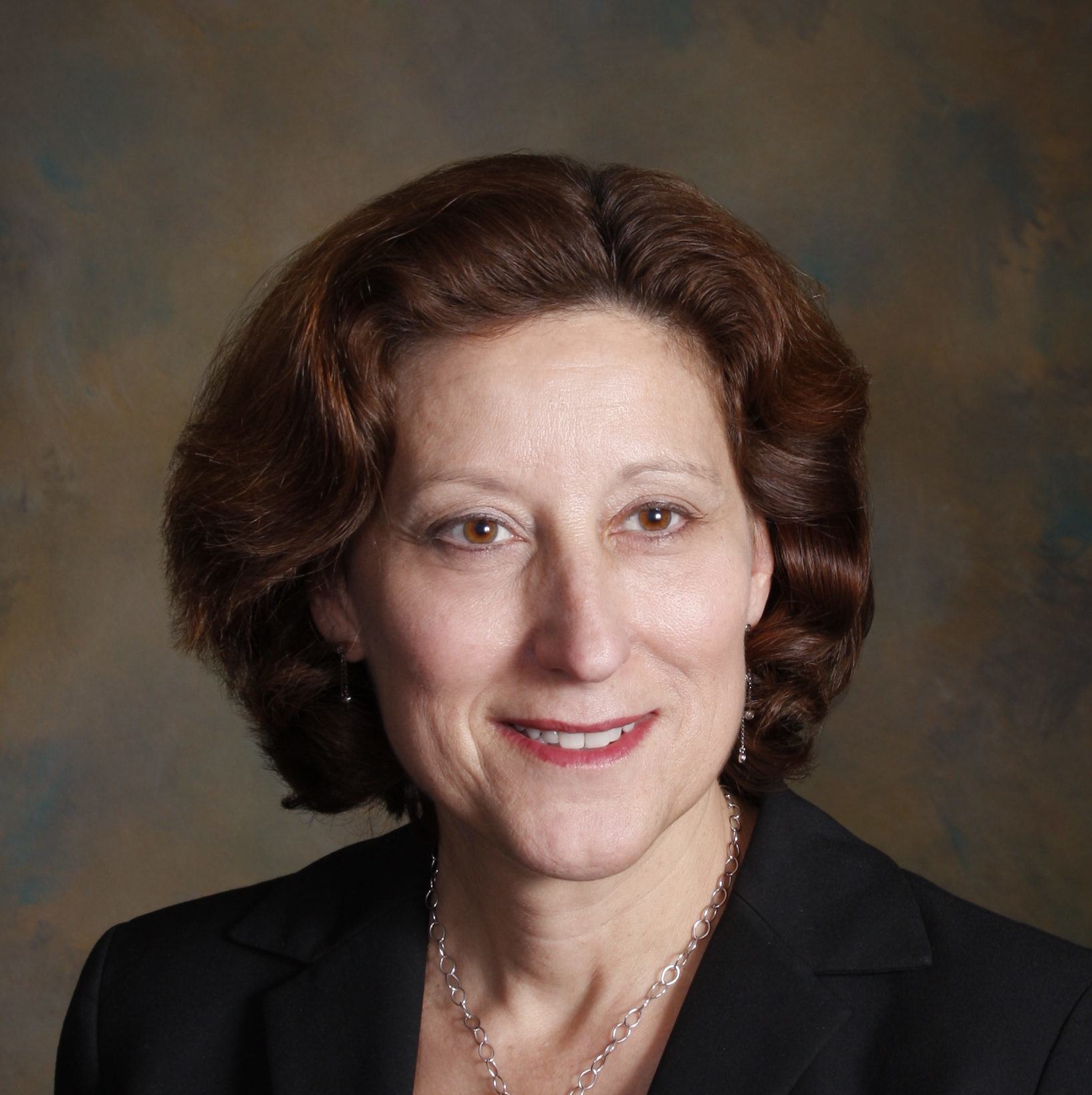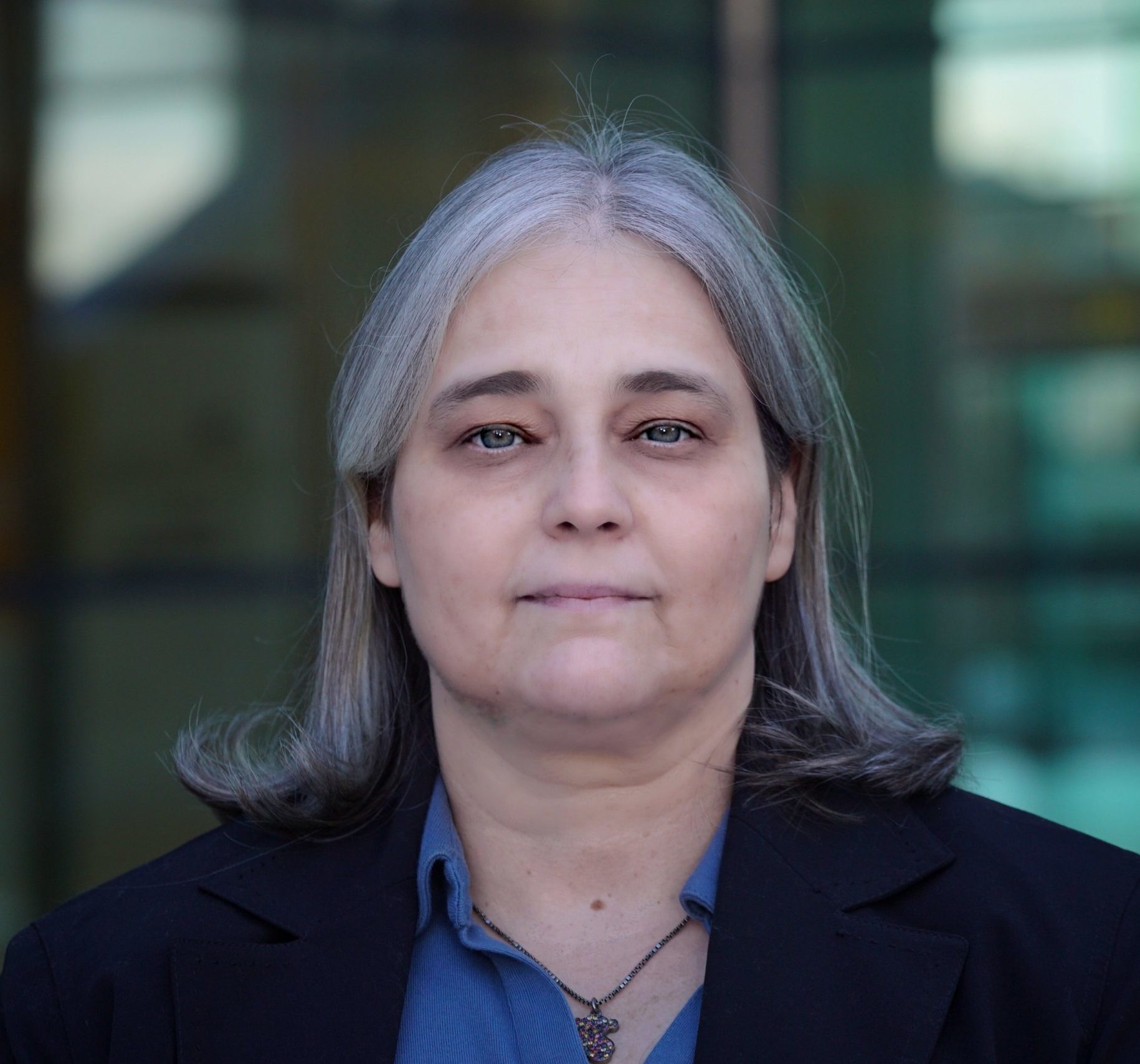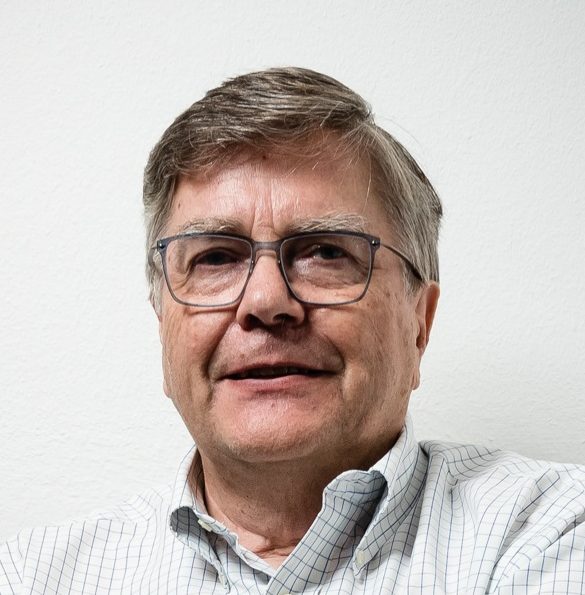touchPANEL DISCUSSION The emerging role of SERDs in HR+ breast cancer: Which patients may benefit most in clinical practice?
Watch experts in breast cancer management discuss the use of current and emerging SERDs in treating HR+ breast cancer.

Prof. Hope S Rugo
UCSF Comprehensive Cancer Center, San Francisco, CA, USA
CHAIR
Panelists:
Introduction
Chair Prof. Hope Rugo introduces the expert panel and agenda for this discussion on the emerging role of SERDS in HR+ breast cancer.
view bio and disclosures 1/4 Next ChapterWhat are the key advances in HR+ breast cancer for 2021?
The panel discusses latest updates in treatment guidelines for patients with HR+ advanced breast cancer, and the developing role of biomarkers in supporting treatment decisions.
view bio and disclosures 2/4 Next ChapterWhich patient subgroups require specific considerations/treatments in the breast cancer setting?
The panel consider which patient-specific factors are the most important to assess, when establishing a treatment plan for patients with HR+ breast cancer.
view bio and disclosures 3/4 Next ChapterWhich patients would benefit most from the oral, second-generation SERD therapies in development?
The panel review data for emerging SERDs, which are yet to be approved, and considers their potential impact on standard of care.
view bio and disclosures 4/4 Take CE/CME TestOverview & Learning Objectives
Overview
In this activity, experts in breast oncology discuss the latest updates in the management of patients with HR+/HER2- breast cancer, including assessing the role of emerging SERDs.
This activity is jointly provided by USF Health and touchIME. read more
Target Audience
This activity has been designed to meet the educational needs of medical oncologists, nurse practitioners, nurses and pharmacists involved in the management of patients with breast cancer.
Disclosures
All individuals in a position to influence content have disclosed to USF Health any financial relationship with an ineligible organization. USF Health has reviewed and mitigated all relevant financial relationships related to the content of the activity. The relevant relationships are listed below. All individuals not listed have no relevant financial relationships.
Faculty
Prof. Hope S Rugo discloses: Grants and research support from AstraZeneca, Ayala, Boehringer Ingelheim, Daiichi Sankyo, Eli Lilly, Gilead, Macrogenics, Merck Sharp & Dohme, Novartis, OBI, Odonate Therapeutics, Pfizer, Polyphor, Roche, Seattle Genetics and Sermonix; and honoraria from Mylan, Napo, Puma and Samsung.
Dr Fatima Cardoso discloses: Advisory board/panel discussion fees from Amgen, Astellas/Medivation, AstraZeneca, Celegene, Daiichi Sankyo, Eisai, GE Oncology, Genentech, GlaxoSmithKline, Macrogenics, Merck Sharp & Dohme, Merus BV, Mundipharma, Mylan, Novartis, Pfizer, Pierre Fabre, Roche, Samsung Bioepis,Sanofi, Seagen and Teva.
Dr Matti Aapro discloses: Honoraria from Accord Pharmaceuticals, Amgen, Astellas, Bayer HealthCare Pharmaceuticals, Biocon, Boehringer Ingelheim, Cephalon, Chugai Pharmaceuticals, Daiichi Sankyo, Dr Reddy’s Laboratories, Eisai, Genomic Health (Exact Sciences), GlaxoSmithKline, Glenmark Pharmaceuticals, Helsinn Healthcare SA, Hospria (Pfizer), Ipsen, Kyowa Kirin Group, Merck Serono (Merck KGaA), Merck Sharp & Dohme, Mundipharma International, Novartis, Pfizer, Pierre Fabre, Roche, Sandoz, Sanofi, Taiho Pharmaceuticals, Tesaro, Teva Pharmaceutical and Vifor Pharmaceuticals; consultancy fees from Accord Pharmaceuticals, Amgen, Bristol Myers Squibb, Celegene, Clinigen Group, Daiichi Sankyo, Eisai, Eli Lilly, G1 Therapeutics, Genomic Health (Exact Sciences), GlaxoSmithKline, Helsinn Healthcare SA, Hospira (Pfizer), Merck Serono (Merck KGaA), Merck Sharp & Dohme, Mundipharma International, Novartis, Pfizer, Pierre Fabre, Roche, Sandoz, Tesaro (GSK), Teva Pharmaceuticals and Vifor Pharmaceuticals; and grants/research support from Amgen, Eisai, Genomic Health (Exact Sciences), Helsinn, Hospira, Merck Sharp & Dohme, Mundipharma International, Novartis, Pfizer, Roche, Sandoz, Tesaro, Teva Pharmaceutical and Vifor Pharmaceuticals.
Content reviewer
Kaitlin J Hendrix, APRN, AOCNP has no financial interests/relationships or affiliations in relation to this activity.
Touch Medical Director
Christina Mackins-Crabtree has no financial interests/relationships or affiliations in relation to this activity.
USF Health Office of Continuing Professional Development and touchIME staff have no financial interests/relationships or affiliations in relation to this activity.
Requirements for Successful Completion
In order to receive credit for this activity, participants must review the content and complete the post-test and evaluation form. Statements of credit are awarded upon successful completion of the post-test and evaluation form.
If you have questions regarding credit please contact cpdsupport@usf.edu
Accreditations
Physicians
This activity has been planned and implemented in accordance with the accreditation requirements and policies of the Accreditation Council for Continuing Medical Education (ACCME) through a joint providership of USF Health and touchIME. USF Health is accredited by the ACCME to provide continuing medical education for physicians.
USF Health designates this enduring material for a maximum of 0.75 AMA PRA Category 1 CreditTM. Physicians should claim only the credit commensurate with the extent of their participation in the activity.
The European Union of Medical Specialists (UEMS) – European Accreditation Council for Continuing Medical Education (EACCME) has an agreement of mutual recognition of continuing medical education (CME) credit with the American Medical Association (AMA). European physicians interested in converting AMA PRA Category 1 CreditTM into European CME credit (ECMEC) should contact the UEMS (www.uems.eu)
Advanced Practice Providers
Physician Assistants may claim a maximum of 0.75 Category 1 credits for completing this activity. NCCPA accepts AMA PRA Category 1 CreditTM from organizations accredited by ACCME or a recognized state medical society.
The AANPCP accepts certificates of participation for educational activities approved for AMA PRA Category 1 CreditTM by ACCME-accredited providers. APRNs who participate will receive a certificate of completion commensurate with the extent of their participation.
Nurses
USF Health is accredited as a provider of nursing continuing professional development by the American Nurses Credentialing Center’s Commission on Accreditation.
A maximum of 0.75 contact hour may be earned by learners who successfully complete this continuing nursing education activity. USF Health, the accredited provider, acknowledges touchIME as the joint provider in the planning and execution of this CNE activity.
This activity is awarded 0.75 ANCC pharmacotherapeutic contact hours.
Pharmacists
USF Health is accredited by the Accreditation Council for Pharmacy Education as a provider of continuing pharmacy education. This knowledge-based program has been approved for 0.75 contact hours (0.075 CEUs). Universal program number is as follows: 0230-9999-21-005-H01-P.
Date of original release: 5 November 2021. Date credits expire: 5 November 2022.
If you have any questions regarding credit please contact cpdsupport@usf.edu
Learning Objectives
After watching this activity, participants should be better able to:
- Describe the evolving treatment landscape for HR+ breast cancer
- Distinguish breast cancer populations of special interest and understand the potential impact on the management and treatment of disease in these patients
- Assess the potential of emerging SERDs in the context of the current treatment landscape for breast cancer
Faculty & Disclosures

Prof. Hope S Rugo
UCSF Comprehensive Cancer Center, San Francisco, CA, USA
Hope S Rugo, MD, FASCO, is the Director of Breast Oncology and Clinical Trials Education at the UCSF Comprehensive Cancer Center, and a medical oncologist specializing in breast cancer research and treatment. She joined the Breast Care Center in 1999 after a decade of experience at University of California San Francisco (UCSF) in malignant haematology/bone marrow transplantation. She entered the field of breast cancer in order to incorporate novel therapies with excellent quality of care into the treatment of breast cancer. Dr Rugo graduated from the University of Pennsylvania School of Medicine in 1983. She completed a residency in internal medicine and primary care followed by a fellowship in haematology and oncology at UCSF and was a postdoctoral fellow in immunology at Stanford University. Dr Rugo joined the faculty at UCSF in 1990. read more
Dr Rugo is principal investigator of multiple clinical trials focusing on novel targeted therapeutics to improve the treatment of breast cancer and has published widely in this area. Her research interests include immunotherapy and combinations of targeted agents to treat breast cancer, as well as the management of toxicity. She is co-chair of the Safety Committee for the multicenter adaptively randomized, phase II I-SPY2 trial; co-chair of the Triple Negative Working Group of the Translational Breast Cancer Research Consortium (TBCRC); and a member of the Alliance Breast Committee. Dr Rugo is an active clinician and is committed to education. She has received a number of awards honouring her work.
Prof. Hope S Rugo discloses: Grants and research support from AstraZeneca, Ayala, Boehringer Ingelheim, Daiichi Sankyo, Eli Lilly, Gilead, Macrogenics, Merck Sharp & Dohme, Novartis, OBI, Odonate Therapeutics, Pfizer, Polyphor, Roche, Seattle Genetics and Sermonix; and honoraria from Mylan, Napo, Puma and Samsung.

Dr Fatima Cardoso
Breast Unit, Champalimaud Clinical Center, Lisbon, Portugal
Dr Cardoso is the Director of the Breast Unit of the Champalimaud Clinical Center (CCC) in Lisbon, Portugal, and is board certified in medical oncology and internal medicine. She earned her medical degree at the University of Porto in Portugal, and completed fellowships at the Translational Research Unit of the Jules Bordet Institute (IJB) in Brussels, Belgium, and the Department of Molecular and Cellular Oncology at MD Anderson Cancer Center in Houston, TX, USA. She then worked for 10 years as Assistant Professor at the Medical Oncology Clinic of the IJB, and served as the Scientific Director of the international research network TRANSBIG for 7 years (EU Framework VI). read more
Dr Cardoso’s research interests include the biology of breast cancer, prognostic and predictive markers of response to systemic therapy, and new anticancer agents. She is actively involved in many phase I–IV breast cancer clinical trials. She has authored about 300 publications, and has presented her work nationally and internationally. Dr Cardoso is actively involved in numerous professional organizations, such as The European Society for Medical Oncology (ESMO), The European Organisation for Research and Treatment of Cancer (EORTC), The American Society of Clinical Oncology (ASCO) and The American Association for Cancer Research (AACR), where she serves on several committees. Dr Cardoso founded, and is president of, the Advanced Breast Cancer (ABC) Global Alliance and of the ABC International Consensus Guidelines Conference.
Dr Cardoso has received educational and research grants from a number of organizations, including the Breast Cancer Research Foundation, the European Society of Medical Oncology and the European Union.
In recognition of her contributions to research in treating and managing breast cancer, Dr Cardoso has received numerous awards, including the prestigious Order of Santiago da Espada for Scientific Merit and the Flims Alumni Club (FAC) Lifetime Achievement Award.
Dr Fatima Cardoso discloses: Advisory board/panel discussion fees from Amgen, Astellas/Medivation, AstraZeneca, Celegene, Daiichi Sankyo, Eisai, GE Oncology, Genentech, GlaxoSmithKline, Macrogenics, Merck Sharp & Dohme, Merus BV, Mundipharma, Mylan, Novartis, Pfizer, Pierre Fabre, Roche, Samsung Bioepis, Sanofi, Seagen and Teva.

Dr Matti Aapro
Genolier Cancer Center, Genolier, Switzerland
Matti Aapro is Director at the Genolier Cancer Center, Switzerland. Dr Aapro received his medical degree from the Faculty of Medicine, University of Geneva, Switzerland, and subsequently completed a fellowship at the Arizona Cancer Centre in Tucson, USA, later becoming the founding chair of the Medical and Radiation Therapy Department at the European Institute of Oncology in Milan, Italy. read more
Dr Aapro is president of the European Cancer Organisation and of Sharing Progress in Cancer Care (SPCC), and a member of the board of the European School of Oncology (ESO) and the International Society for Geriatric Oncology (SIOG). Dr Aapro is a former board member of the European Organisation for Research and Treatment of Cancer (EORTC) and past president of the Multinational Association for Supportive Care in Cancer (MASCC).
Dr Aapro’s major interests are new drug development, breast cancer, cancer in the elderly and supportive care. Dr Aapro has authored more than 300 publications in peer-reviewed journals. He has been the recipient of awards from Acta Oncologica, SIOG, MASCC and ASCO (BJ Kennedy prize).
Dr Matti Aapro discloses: Honoraria from Accord Pharmaceuticals, Amgen, Astellas, Bayer HealthCare Pharmaceuticals, Biocon, Boehringer Ingelheim, Cephalon, Chugai Pharmaceuticals, Daiichi Sankyo, Dr Reddy’s Laboratories, Eisai, Genomic Health (Exact Sciences), GlaxoSmithKline, Glenmark Pharmaceuticals, Helsinn Healthcare SA, Hospria (Pfizer), Ipsen, Kyowa Kirin Group, Merck Serono (Merck KGaA), Merck Sharp & Dohme, Mundipharma International, Novartis, Pfizer, Pierre Fabre, Roche, Sandoz, Sanofi, Taiho Pharmaceuticals, Tesaro, Teva Pharmaceutical and Vifor Pharmaceuticals; consultancy fees from Accord Pharmaceuticals, Amgen, Bristol Myers Squibb, Celegene, Clinigen Group, Daiichi Sankyo, Eisai, Eli Lilly, G1 Therapeutics, Genomic Health (Exact Sciences), GlaxoSmithKline, Helsinn Healthcare SA, Hospira (Pfizer), Merck Serono (Merck KGaA), Merck Sharp & Dohme, Mundipharma International, Novartis, Pfizer, Pierre Fabre, Roche, Sandoz, Tesaro (GSK), Teva Pharmaceuticals and Vifor Pharmaceuticals; and grants/research support from Amgen, Eisai, Genomic Health (Exact Sciences), Helsinn, Hospira, Merck Sharp & Dohme, Mundipharma International, Novartis, Pfizer, Roche, Sandoz, Tesaro, Teva Pharmaceutical and Vifor Pharmaceuticals.

Register to touchONCOLOGY for FREE
- Peer-reviewed journals and expert opinions
- Interactive CME and e-learning modules
- Video conference highlights


